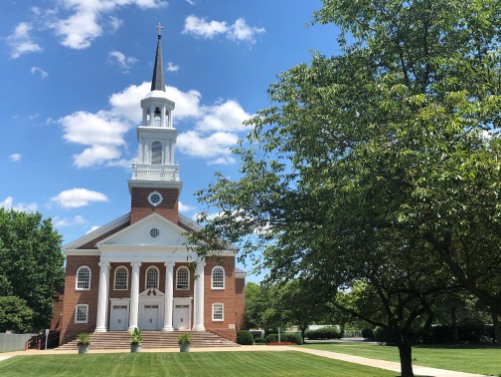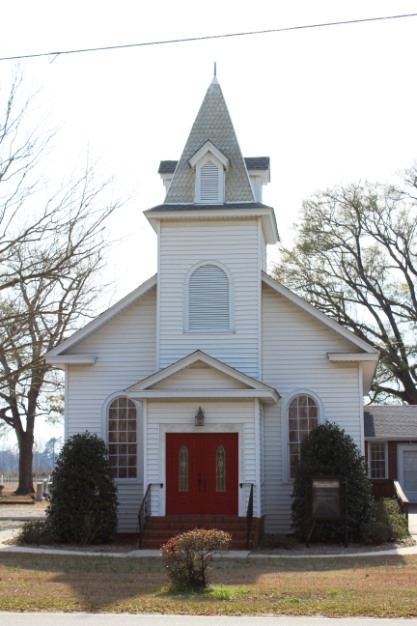When Should You Refinance Church Mortgage?
When churches need money for big projects like a building expansion, they use their existing property to take a loan (mortgage). The new mortgage includes the amount of money that was already mortgaged (if there was a previous mortgage) plus the amount needed for the expansion. There are other reasons to seek a refinance including paying off a mortgage that has a balloon.
This is where refinancing your church mortgage comes into the picture. If the new loan has a better interest rate than the old loan, then the church saves money and increases cash flow. It also frees up money for other needs like monthly funds to run your church.
This article delves into when you should refinance your church mortgage and the many benefits that refinancing offers. But first, let’s explain what it means to refinance church mortgages.
What Does Refinancing a Church Mortgage Mean?
Refinancing a church mortgage means paying off your current loan with a new one. When you refinance, a financial institution lends you the money to pay off the old mortgage. Just as you did with the original mortgage, the financial institution will ask for an appraisal of your property. Also, the lender will conduct a title search to verify the property belongs to your church.
You will also pay the processing fees and satisfy other requirements needed by the financial institution refinancing the loan.

Are There Different Types of Church Mortgage Refinances?
Yes. Several refinance options are available to churches, and this section covers the different types.
Cash-Out Refinance
This refinancing option involves borrowers taking out a new loan on a property for a more significant sum than what they owe in their original mortgage. The new loan will pay the existing mortgage, and the borrower will receive the money left at closing. You will get the difference between the new and old mortgage sum.
Also, since the new and more significant amount replaces the current mortgage, the monthly payment will differ. Before signing up for this refinance option, understand how it will affect your church’s monthly budget and the repayment terms.
Cash-In Refinance
As the name implies, a cash-in refinance is the opposite of the cash-out option. Here, you don’t take money out, you pay money in at closing to reduce the mortgage balance.
The benefit of cash-in refinance is that it reduces your loan-to-value ratio (LTV) and increases the equity of the mortgaged property. This can reduce your monthly payment and the amount if interest you pay over the life of the loan. This refinancing option is not very common.
Rate and Term Refinance
This refinance option is among the most commonly chosen when refinancing a mortgage. Rate and term refinance allow you to change your church mortgage’s interest rate and loan term. It is beneficial when interest rates are low, enabling you to negotiate favorable terms with the lender.
However, note that the loan amount remains unchanged even if the rate and term change. Also, depending on the changes made to the rate and term, you might pay your mortgage faster instead of getting lower monthly installments. So, ensure you understand the rate and term refinance contract before agreeing.
Short Refinance
This refinance option is excellent for churches that defaulted on their payments and are at risk of the lender foreclosing on their property. With short refinance, the lending financial institution reduces your mortgage balance, which may reduce your monthly payment.
This can be damaging to the credit of the church and may make it harder for the church to borrow money in the future.
Which Refinance Church Mortgage Option Is Best for You?
With many refinancing options, making the best choice for your church might be challenging. Thankfully, there are factors you can consider before making a final decision. So, keep the following in mind when determining the church mortgage refinance option that is best for you:
- The financial goals you want to achieve by refinancing your mortgage
- The amount of equity you have in the mortgaged property
- Your church credit history
- Your church’s overall income and financial standing
If you cannot decide after considering the above, our refinance experts can help. Contact us today for more information.
When Should You Refinance Church Mortgage?
Generally, most people believe that the best time to refinance a mortgage is when the interest rates being offered by lenders are lower than the interest rate on your church loan.
Below are instances when you should consider refinancing your church mortgage.
When You Can Reduce the Loan Term
Consider refinancing your church mortgage when you can reduce the loan term. Loan term reduction is possible when interest rates fall. In such an instance, you can refinance the existing mortgage by getting another loan with a similar monthly payment and a shorter repayment period.
For example, if your mortgage is a 30-year fixed rate, and the loan sum is $100,000, you can refinance from 9% to 5.5% monthly payments. This reduces the term by half, and your monthly payment will increase slightly from $805 to $817. However, if you already pay 5.5% monthly for a 30-year mortgage, reducing the term to 15 years will result in a higher monthly installment.
So, if you currently pay $568, you will pay $715 if the loan term is reduced to 15 years. Therefore, do the math and decide if a loan term reduction is your best option. Also, before considering refinancing your loan by reducing the loan term, ensure you can repay it in less time than the original mortgage stipulates.
When You Can Convert the Adjustable-Rate Mortgage (ARM) to a Fixed-Rate Mortgage
An adjustable-rate mortgage is a loan with an interest rate that fluctuates periodically based on the performance of a specific benchmark. ARM’s often have lower interest rates than fixed-rate mortgages. However, periodic adjustments result in increased rates, higher than what is obtainable in a fixed-rate mortgage.
When this happens, you can refinance from an adjustable-rate mortgage to a fixed-rate mortgage to enjoy lower interest rates. You will also have less concern about future interest rate hikes. Conversely, you can refinance from a fixed-rate mortgage to an adjustable-rate mortgage.
Doing this is advisable when the interest rates keep falling, as it allows you to make smaller monthly payments for your church mortgage. But converting from a fixed rate to ARM would be unwise if the mortgage interest rates keep rising.
When You Can Get a Low-Interest Rate
Every borrower wants to pay lower interest rates. However, inflation and other factors affect the interest rate you pay on your mortgage. For example, in 2022, inflation was very high, causing interest rates to surge higher.
The average interest rate for a 30-year mortgage went from 3.33% to 7.08% in October 2022. However, the number was still lower than the interest rate surge in 1981, when the yearly average was as high as 16.63%. Therefore, at times like this, when the interest rate is high, it is not advisable to refinance a church mortgage unless you must.
When Your Church Has to Make a Balloon Payment in the Near Future
Some loans are structured as a series of small monthly payments followed by a single large one at the end of the loan period. A balloon payment is the final amount that you pay on the loan. If your final payment date is close and you don’t have the money, you can apply for refinancing.
Are There Benefits to Refinancing Your Church Mortgage?
Yes. Opting to refinance your church mortgage rather than letting the lender foreclose on your property has several benefits. Below are some of the advantages.
Better Mortgage Rate
Mortgage rates fluctuate, and sometimes they stay low for too long or high. If the mortgage rate has decreased since you took out the loan, it is best to refinance. Refinancing helps you save money and is an excellent option if your church credit improves.
Better Predictable Costs
Refinancing from an adjustable-rate mortgage to a fixed mortgage allows you to take advantage of more predictable costs. This way, you don’t have to worry about increasing monthly installments if the rates rise.
Possibility of More Debt
Indeed, refinancing is often a great idea. However, it is also a double-edged sword, as you may have more debt. Therefore, before you refinance your church mortgage, ensure you can afford the new payments.
Is Refinancing the Same as a Second Mortgage?
No, refinancing and a second mortgage are not the same. As mentioned, refinancing is replacing your primary mortgage with a new loan and repaying the new mortgage on different terms.

How Does Refinancing Work
Again, deciding to refinance a church mortgage is an excellent way to get better loan terms than you had. The application process is like that of your original mortgage. The first step is identifying the lender you want to refinance your mortgage.
Next, submit the necessary documents to the lending institution. The documents needed include the following:
- Church application
- Last three years of the church’s profit and loss statements and balance sheets
- Year to date profit and loss statements and balance sheets
- Short explanation of what the church is looking to accomplish
Once the lender has examined these documents, they will underwrite your loan. As mentioned, you will pay some of the fees you did when you got the first loan, like the costs of application, appraisal, and home title search. The financial institution will approve the loan when the underwriting and appraisal end.
How Long Does It Take to Refinance Church Mortgage?
Refinancing takes time to conclude due to the many processes involved. The average refinance takes about 60 to 90 days to close (a month and a half.) However, the timeline may differ depending on your lender and your ability to provide the information they need on time.
Conclusion
Refinancing a church mortgage ensures you do not lose your property, may give you access to lower interest rates, and potentially build up equity more quickly. However, only refinance your church mortgage when it makes sense for your church. But if, after weighing your options, you’re still unconvinced refinancing is the way to go, our church mortgage team can help you make the best decision. Contact us today.

